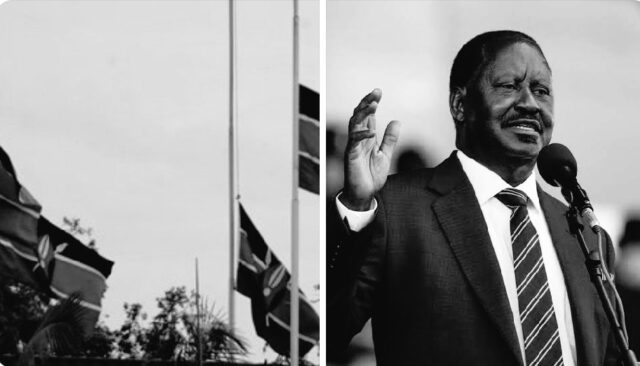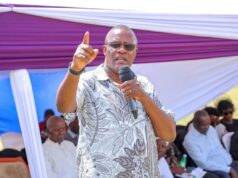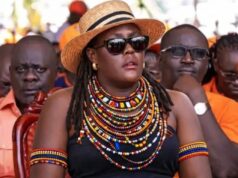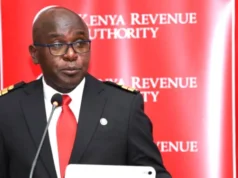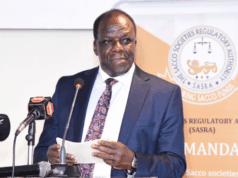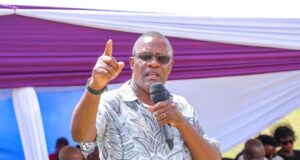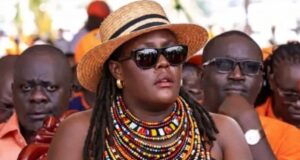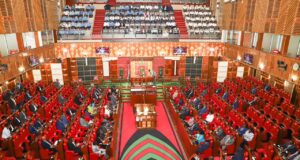History has a habit of circling back to where it began. When Jaramogi Oginga Odinga died in January 1994, Kenya buried him as an outsider, a man who helped win independence, then fell out with the system he helped create. No state flag draped his coffin. No army guard stood to attention. No president attended.
Thirty-one years later, his son, Raila Amolo Odinga, will be buried under full state and military honours. The flag that once refused to lower for his father now flies half-mast for his son. For the Odinga family, this is not only personal vindication; it is a national reckoning.
The Father’s Rebellion
Jaramogi’s story is Kenya’s story told through defiance. In 1963, as the nation prepared for independence, Jaramogi famously refused to form a government until Jomo Kenyatta was released from detention. “No Kenyatta, no government,” he declared. That act cemented his place as a founding patriot and moral voice of the new republic.
Yet soon after independence, Jaramogi’s relationship with Kenyatta soured. He accused the first president of betraying the ideals of freedom and turning Kenya into a system of privilege. The fallout was bitter. Jaramogi resigned as Vice President in 1966 and became leader of the opposition under the Kenya People’s Union (KPU).
That decision cost him dearly. His party was banned. He was detained. His name was erased from official history books for decades. By the time he died in 1994, he remained respected by the people, but estranged from the state he had helped midwife.
His burial in Bondo was vast, emotional, and defiant. Opposition supporters, freedom veterans, and common citizens flooded the lakeside town. But the state was absent. There were no soldiers, no gun salutes, no official delegations. He was buried under the shadow of political rejection.
The Curse and the Son’s Burden
Among the Luo, a father’s spirit is powerful, his words and fate binding. After years of political frustration, Jaramogi once lamented that his family might never ascend to power. His followers turned the lament into prophecy — the “Odinga curse.” It was whispered that no Odinga would ever become president, that their path was destined to challenge power but never possess it.
Raila Odinga inherited that myth like a family heirloom. His life mirrored his father’s: detention, torture, exile, return, and relentless opposition. Both men led movements that shook the state, both suffered for their beliefs, and both refused to surrender. Yet where Jaramogi remained forever outside the circle, Raila slowly forced the state to make room for him.
He entered parliament in 1992, became a Cabinet minister under Mwai Kibaki, then a Prime Minister in the 2008 Grand Coalition government. For the first time, an Odinga sat in the center of government, sharing power with a sitting president. The “curse” began to lose its hold.
Raila never reached State House, despite five attempts. But he outlasted nearly every rival of his generation. He became Kenya’s longest-surviving opposition leader, the man whose hand shaped every major political transition for three decades.
The State’s Acknowledgment
The declaration of a state funeral with full military honours is more than ceremony. It is the state’s final acknowledgment of Raila’s central role in the republic’s story. President William Ruto’s government announced seven days of national mourning, military escort, and a national funeral service at Nyayo Stadium. The symbolism is unmistakable.
For the first time, the Kenya Defence Forces will salute a man who once stood on the streets against the very government they protected. It signals that opposition, too, is part of nation-building. It says that the state is strong enough to honour those who once defied it.
Completing the Circle
Jaramogi Oginga Odinga’s funeral was an act of protest. Raila Odinga’s will be an act of national unity. The son will rest with the same military dignity once reserved only for presidents — a recognition his father was denied.
The irony is deep and fitting. The man long branded as the eternal oppositionist leaves not as a rebel, but as a founding statesman. The so-called Odinga curse dissolves not through conquest, but through acknowledgment.
History has come full circle. The state that once rejected Jaramogi now salutes his bloodline. The family once shut out of power now receives the highest honours of the republic.
Raila Odinga never needed to sit on the throne to be written into the national story. He only needed the flag to bend once in his direction.


